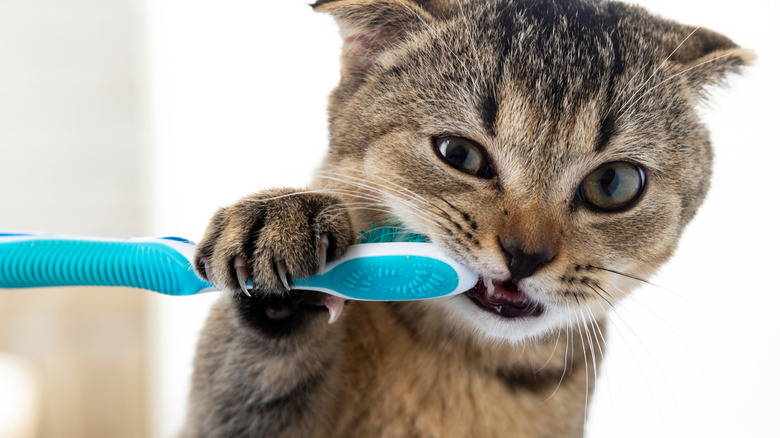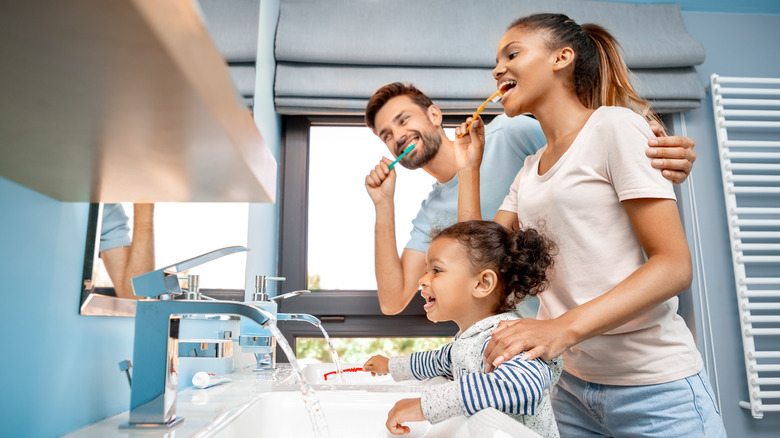How To Cope If You Get Nauseous When Brushing Your Teeth
Brushing your teeth may not be the highlight of your daily routine. Still, it's necessary for good health and is essential to your daily self-care routine (via Peppermint Dental & Orthodontics). But some people experience more difficulty performing this seemingly simple task than others. According to Barbag Dental, up to 15% of people live with a hypersensitive gag reflex that can interfere with dental hygiene. A strong gag reflex, an aversion to toothpaste flavoring, a too-large toothbrush, or other factors could cause you to gag or feel nauseous while brushing your teeth. But why does this happen?
Healthline explains the gag reflex is an involuntary protective response that helps prevent choking or swallowing something you shouldn't. For some people, the combination of a toothbrush, a vigorous brushing motion, and the trickle of water and toothpaste running down the back of the throat can trigger the gag reflex (per New Times). But this natural reflex can make caring for your mouth a real pain.
Fortunately, adjusting your approach could help make brushing your teeth easier. Here's how to cope if you get nauseous when brushing your teeth.
Strategies to relieve nausea
The American Dental Association recommends brushing your teeth at least twice a day. But if you get nauseous when brushing your teeth, you may shorten the time spent brushing, skip flossing, and avoid touching the back teeth to avoid gagging. You may even forego brushing altogether at times. Barbag Dental recommends using a smaller or electric toothbrush and spitting out the toothpaste and saliva more frequently as you brush. Breathe through your nose and distract yourself while brushing by focusing on something else. Dr. Joy Antony tells Gulf News that using a tongue scraper instead of a toothbrush to clean your tongue could help reduce nausea.
For expectant mothers, brushing their teeth can sometimes provoke morning sickness, says Whitney DiFoggio, RDH, for Teeth Talk Girl. But good dental hygiene is particularly crucial during pregnancy. A 2013 study published in the Iranian Journal of Reproductive Medicine showed periodontal disease may affect healthy birth weight in infants, which could potentially lead to other complications. DiFoggio recommends temporarily ditching the toothpaste for plain water. Use xylitol drops instead to prevent dental plaque buildup and help keep your mouth healthy and clean. She also suggests you rinse your mouth after meals and snacks, avoid cleaning your tongue, and try brushing later in the day to prevent nausea.
For most people, adjusting your approach to dental hygiene could help calm the gag reflex. If not, Barbag Dental recommends you see your physician to rule out a medical condition.


